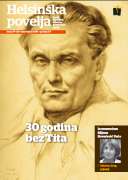

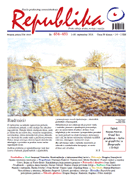

Keywords: Serbia; War Criminals; World War II;
More...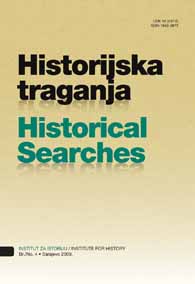
Keywords: Yugoslavia; Second World War; Women; Armed Resistance; Oral History
Based on published sources, the press of the National Liberation Movement and personal accounts of women veterans, this article discusses women’s armed resistance in occupied Yugoslavia. It explains women’s (self-)mobilisation for the National Liberation Army with reference both to individual motives and the nature of the Yugoslav liberation/ civil/revolutionary war of 1941-1945. The article also describes women’s concrete roles (doctor, nurse, fighter) in the partisan forces. The personal narratives of nurse Radmila V. and fighter/political activist Radojka K. illustrate the complexity of women partisans’ wartime experiences, which included pride of their efficiency as warriors, the solidarity of the wider population and comradeship among partisans, but also incidents of violence, gender-based discrimination and exploitation. In conclusion, the article looks at the representation of women partisans in public discourse during the socialist period. Usually, women veterans’ specific experiences were either ignored or idealized in order to corraborate the official “partisan myth“. Since the 1990s, the history of Yugoslavia’s women partisans became even more marginalized, so that even today, many questions remain open.
More...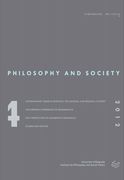
Keywords: World War Two; Jasenovac; Sajmište; concentration camps; memory; Yugoslavia; survivor organisations; SUBNOR; war veterans.
More...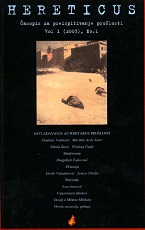
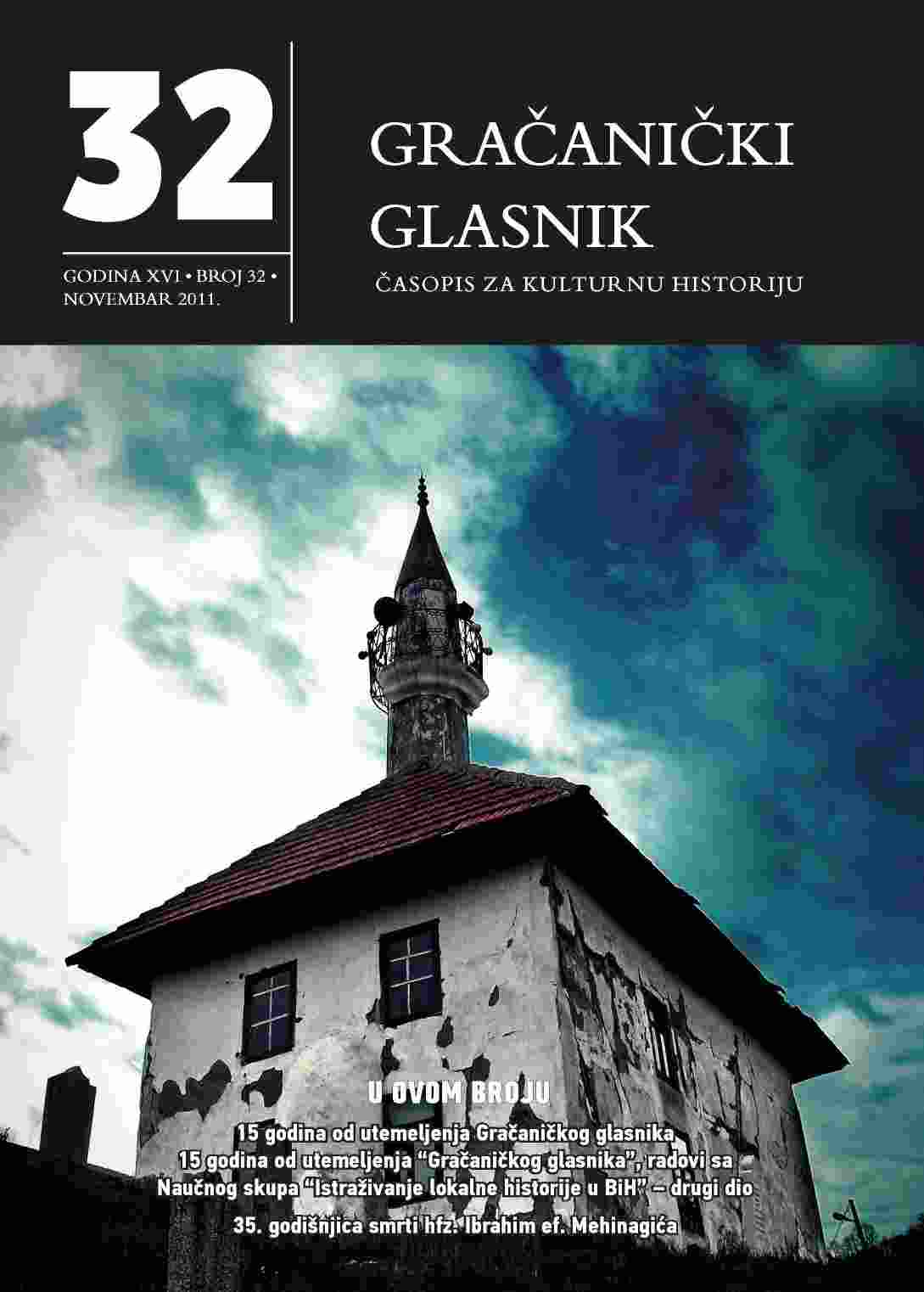
Keywords: Ešref Ćurić; Gračanica; sjećanje
Autorovo sjećanje na Ešrefa Ćurića, prvog urednika Radio-Gračanice, pisca i publicistu, te istaknutog društvenog djelatnika.
More...
Keywords: Gračanica; Brionski plenum; Aleksandar Ranković; Savez komunista Jugoslavije;
Na osnovu dostupne arhivske građe, autor u ovome radu rekonstruira kretanja u Gračanici nakon IV sjednice Centralnog komiteta Saveza komunista Jugoslavije, 1. jula 1966. godine. Dostupna građa omogućila je rekonstrukciju pozitivnih i negativnih reakcija na donesene odluke, raspoloženje političkih funkcionera i lokalnog stanovništva, što pruža mogućnost za ostvarenje uvida u stanje društvenih odnosa u lokalnoj zajednici. Iako pojedini izvori, koji bi mogli detaljnije predstaviti kretanja u ovoj sredini, nisu dostupni, ostvarenim uvidom u raspoloživi materijal predstavljena je jugoslavenska tema u svojoj mikroregionalnoj varijanti.
More...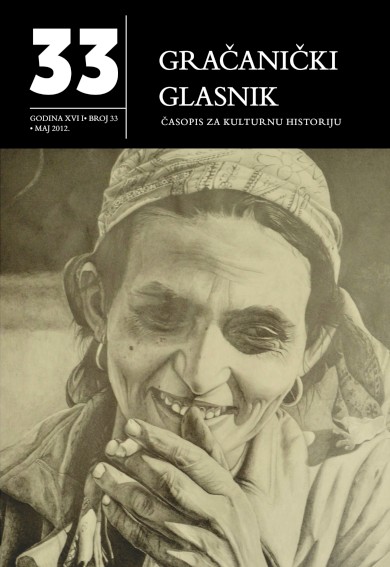
Keywords: Lična zbirka "Derviš Sušić"; Arhiv Tuzlanskog kantona; čuvanje; zaštita; prezentacija;
Rad govori o fondovima i zbirkama Arhiva Tuzlanskog kantona, sa naročitim osvrtom na preuzimanje, sređivanje i prezentaciju sadržaja lične zbirke “Derviš Sušić”. Radi se o zaostavštini jednog od najvećih bosanskohercegovačkih književnika i kulturnih radnika koju je Arhiv Tuzlanskog kantona preuzeo 2011. godine na daljnje čuvanje i zaštitu, uz obavezu prezentacije njenog sadržaja.
More...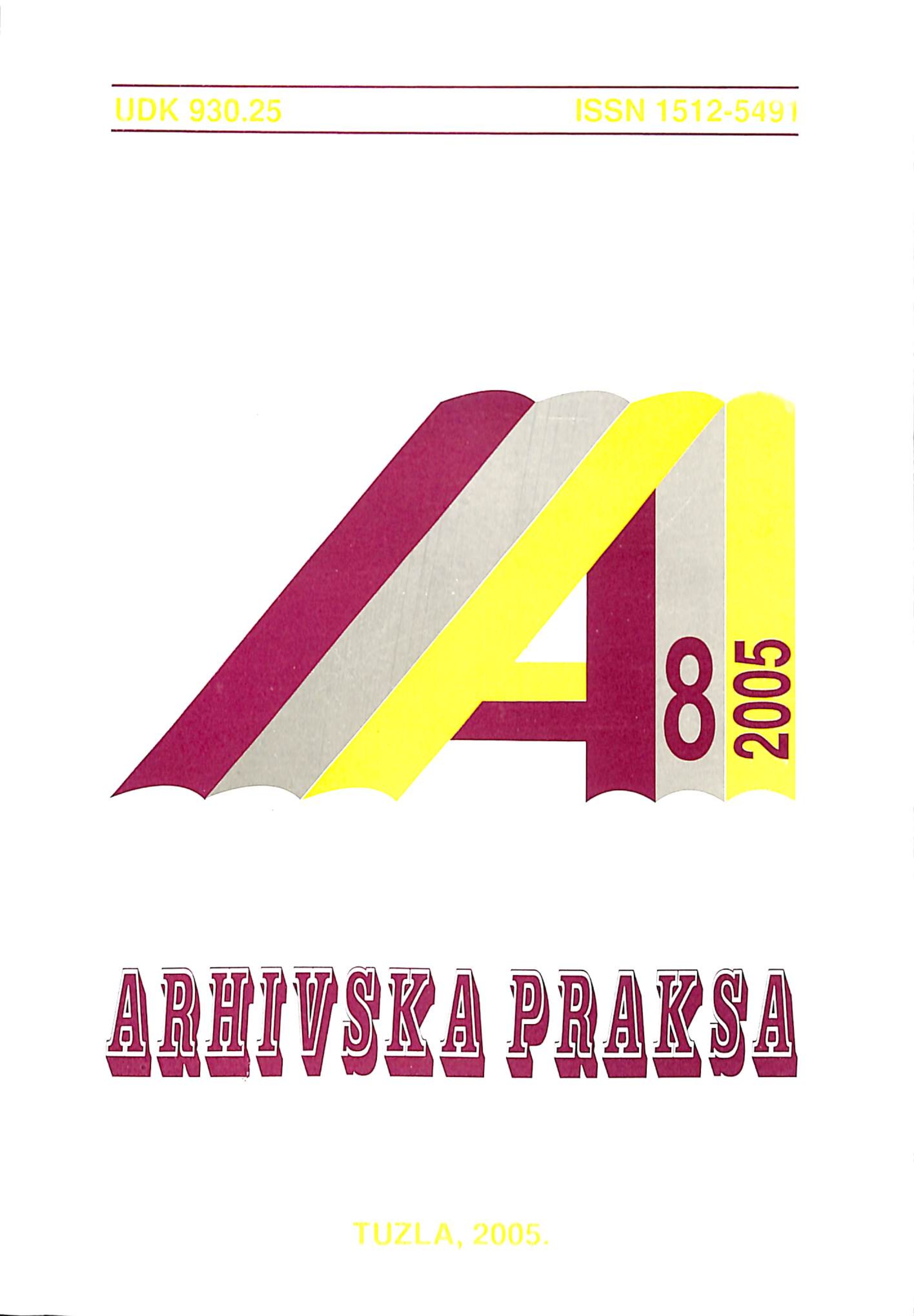
Keywords: Constitution; self-management socialism; archival material; evaluation; socio-political organizations; joint work;
This paper deals with the specifics of archival material incurred since 1974, at the time of shaping the self-governing socialism. Special emphasis is placed on archival dimensions of this material: how much is needed to citizens, how tidy and accessible is, that is valued.
More...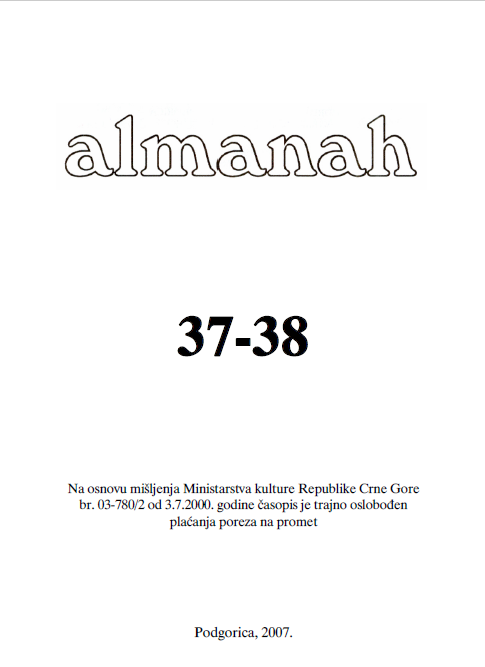
Poznati bošnjački intelektualac i istraživač porijeklom iz Sandžaka dr. Mustafa Memić, koji je dugi niz godina živio u Sarajevu, inače autor više značajnih djela sa polja historije preselio je na Ahiret 02. jula 2007. godine. Dženaza je obavljena u Sarajevu.
More...Keywords: commemorative practices; collective memory; World War Two; Yugoslavia; Gospić; Lika;
How do dominant state narratives influence commemorative practices in local communities in different historical periods? We address this question by carrying out a study of World War Two commemorations in Gospić in two distinct periods of a political regime transition. The study is based on the documents from the archive of Gospić, articles from the local paper, existing scholarly publications on this area, as well as reports from state institutions and non-governmental organizations. We also photographed standing monuments and graveyards dating back to World War Two, or collected archival images and documentation of those that were removed or destroyed, in a fifty-kilometer radius around Gospić. We show how the narratives, symbols, and rituals that formed part of commemorations of World War Two violence changed when competing political actors attempted to establish their political legitimacy or gain political support.
More...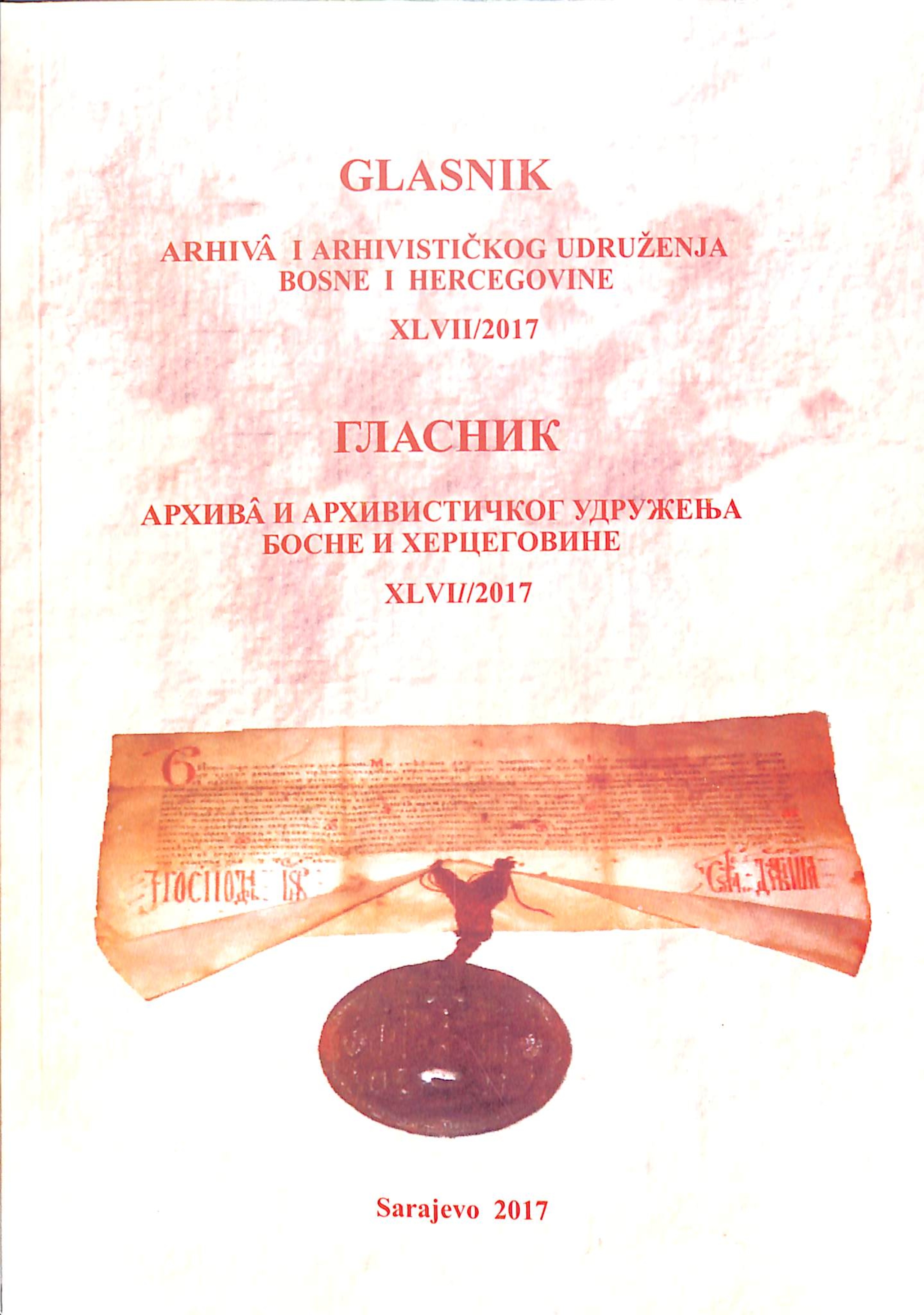
Keywords: Archival material; archival legislation; socialism; archival material availability; Croatian Communist Alliance; Social Democratic Party of Croatia; State Archives in Slavonski Brod;
This paper aims to present the current state of the archival material of the socialist period in the Slavonski Brod State Archives. Through the selected funds, the current archival legislation of the Republic of Croatia will be problematized, in the context of the announcement of the new Archives and Archives Act, with a special emphasis on the role of politics and the problem of accessibility.
More...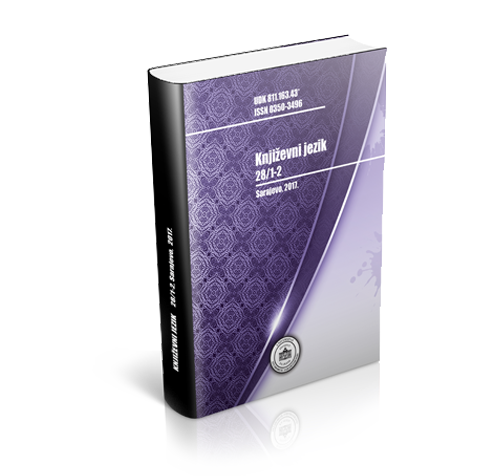
Keywords: lector; grammar; phonology; abbreviations; linguistics; Serbo-Croatian language;
Pisan je ovaj rad sa lektorskog gledišta i iz iskustva. U njemu se bavim pogreškama koje lektori propuštaju i kojih, na žalost, nije mali broj. Zato je ovaj napis praktične naravi. Mada je »bavljenje« jezikom apstraktna djelatnost, lektorski je rad konkretan posao. To je razlog više da ovaj napis bude konkretan, s primjerima.
More...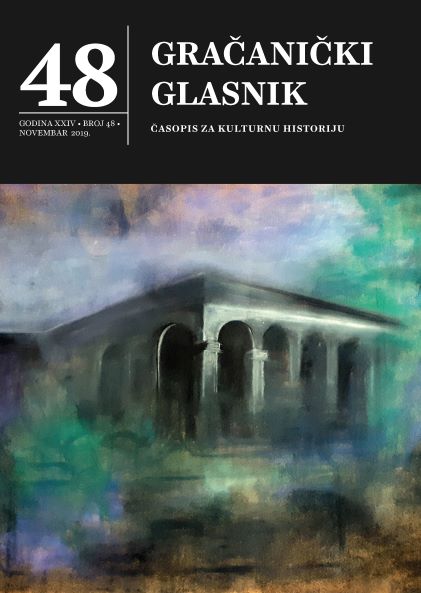
Keywords: Medžid Hamzić; Sjepan Polje; Gracanica; camp Banjica; illegal communist movement;
The author describes a tragic and forgotten character from our area. The paper shows why and how he was forgotten. Sadly, this is one of the many cases of Bosniak self-forgetfulness. This paper is one way by which we should counter this, and learn from the good and bad examples of our past.
More...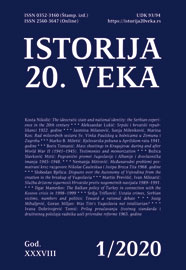
Keywords: Kragujevac; Serbia; World War II; German Soldiers; Communist Authorities; Mass Shootings;
From the beginning of World War II, mass and continuous shootings were carried out in Kragujevac, a city in central Serbia. First, German soldiers executed over 2,790 civilians in Šumarice on October 1941. Later, in November of the same year, the German authorities formed the Metino Brdo camp, where partisan fighters and civilians were tortured, killed, and deported until June of 1942. Then, the German soldiers murdered hundreds of civilians in retaliation near the Military Technical Institute in Kapislana, from the autumn of 1942 until the autumn of 1943. After the liberation of Serbia in the autumn of 1944, the Communist authorities started with executions of ideological and political enemies on Metino Brdo and Kapislana. In this article, we will attempt to perceive this issue from a new angle, by analyzing archival materials, testimonies and memories of survivors, recent relevant literature, and relying on other disciplines close to historiography.
More...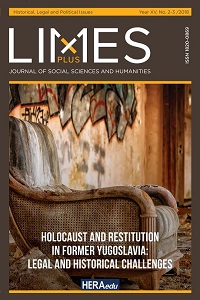
Keywords: Memorial site Jasenovac; concentration camp Jasenovac; culture of memory; breakup of Yugoslavia;
The paper seeks to show what sort of memory of the concentration camp Jasenovac was cultivated in the SFR Yugoslavia, by reviewing the work and memorial practices applied in the Jasenovac Memorial site. The focus is on the eighties of the twentieth century, when the Yugoslav narrative was tempted. It is shown how the gradual break up of such a narrative reflected on the memory of the concentration camp Jasenovac. The paper seeks to point out on the very close links between the Jasenovac themes and the central state narratives.
More...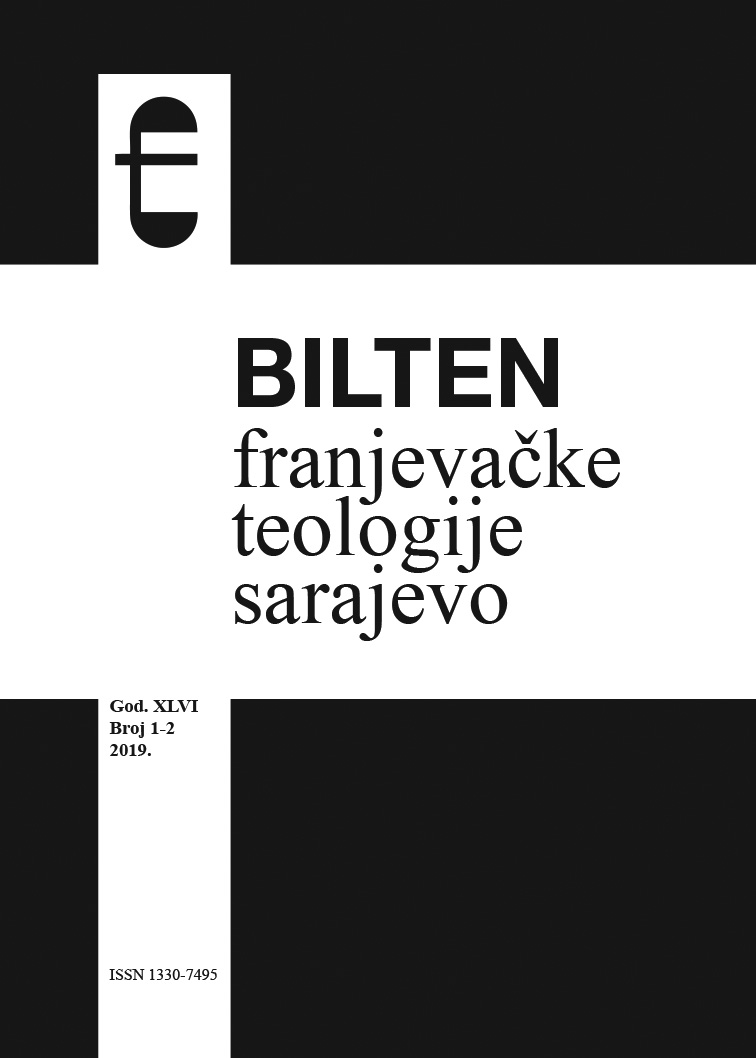
Keywords: Vojskova (village) Zorice (village); Odžak;
Selo Vojskova smješteno je u Bosanskoj Posavini, na desnoj obali rijeke Save, na granici s Republikom Hrvatskom. Nedaleko od sela je utok rijeke Bosne u Savu. Upravno, Vojskova pripada općini Odžak, crk veno župi Sv. Josipa u Gornjoj Dubici u dekanatu Dobor. Vojskova graniči sa sljedećim selima: Prudom, Gornjom i Donjom Dubicom te Zoricama – Trnjakom. Kartografi E. Heiss i I. Brendt (Beč, 1718) ne navode Vojskovu, kao ni 1780. godine, tako ni kartografi na Hrvatskim tajnim zemljovidima u 18. i 19. stoljeću. Također, ni kanonske vizitacije 1742., 1746., 1754., 1761. koje je imao biskup fra Pavao Dragićević, niti 1768. godine biskup fra Marijan Bogdanović, ne spominju Vojskovu. Na austrijskoj topografskoj karti iz 1885. godine piše selo Vojskovo, a to je današnja Vojskova.2 Stanovništvo Vojskove bavi se poljoprivredom i stočarstvom.
More...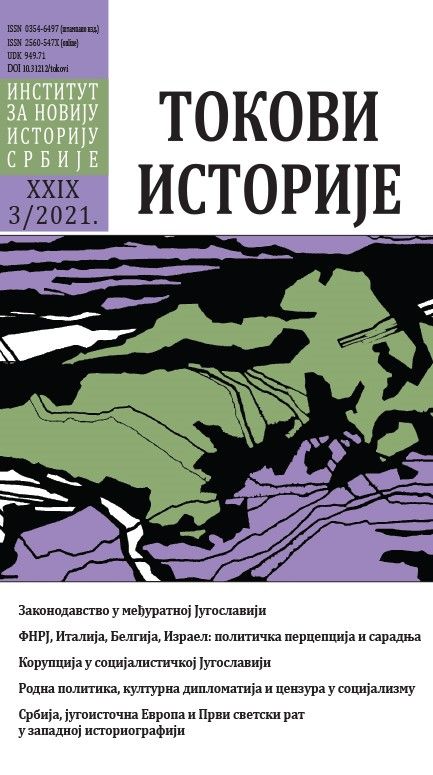
Keywords: corruption; Yugoslavia; Serbia; communism; clientelism
Corruption in socialist Yugoslavia was a specific phenomenon when compared to the inter-war period or to post-socialism. In contrast to liberalism, communist ideology did not support an understanding of corruption as a problem of its own but tended to see political and material “deviations” as originating from the same root – i.e., from a lack of political morale. The League of Communists failed to live up to its role as an educator of society, since it was trapped between declarative moral rigorism and the fact that material need and greed could be satisfied best by becoming a party member
More...